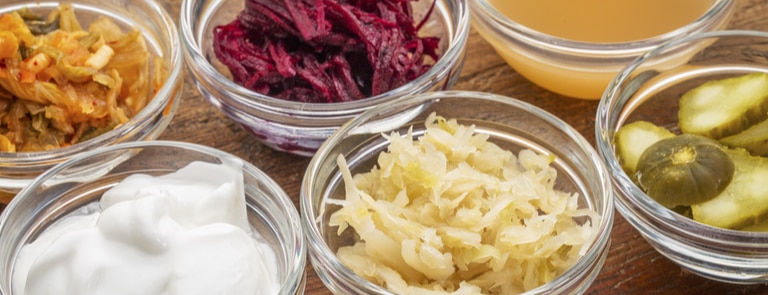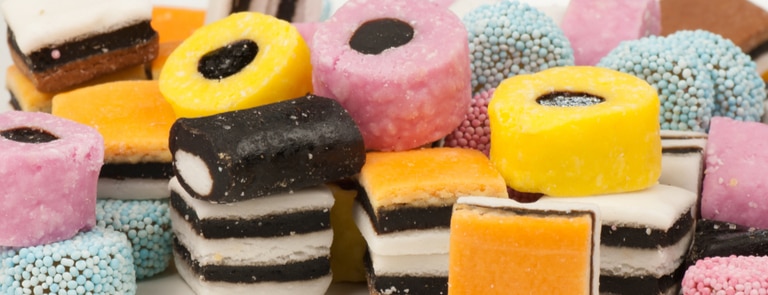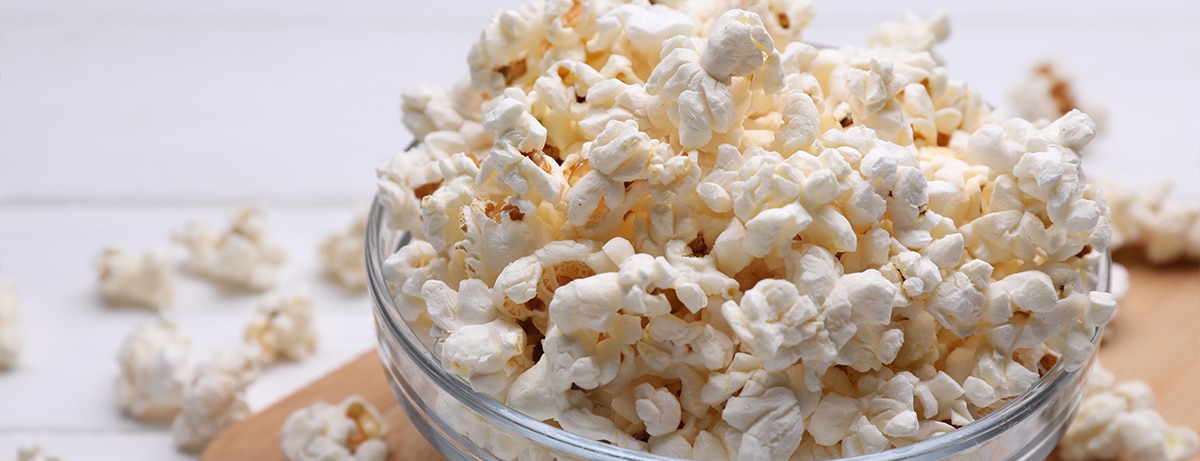10% off £35
18 of the best foods for gut health

Summary
1What disrupts our gut bacteria?
The diversity of our gut bacteria is established at the very start of our development... but it can be altered by multiple factors. Our gut micro...
2What happens in the gut?
The gut is a nine-metre-long tube that starts at the mouth, moves from the oesophagus to the stomach, through the small and large intestines, and...
3The wellness benefits of a healthy gut
In the gut exists a thriving community of bacteria. As well as aiding digestion, they provide essential support for immune functioning, your skin...
What should you eat to keep your gut healthy? And can bacteria really be good for you?
With the help of Holland & Barrett nutritionist, Isabel Tarrant, we delve into the science of digestion and reveal some of the best foods for gut health.
We’ll also find out why fermented foods are the hottest new wellness trend – and how to include them in your diet to work towards a healthy gut.
What disrupts our gut bacteria?

Diet and the gut
What happens in the gut?
- breaking down food into smaller pieces
- absorbing what our body needs from what we eat
- getting rid of the waste our bodies can’t use
The wellness benefits of a healthy gut
What are the symptoms of an unhealthy gut?
- constipation
- diarrhoea
- stomach ache
- heartburn
- indigestion
How can I support normal gut health?
1. Fibre
2. Eat the rainbow
3. Prebiotics
4. Probiotics
5. Polyphenols
9 gut health supporting foods
1. Avocado
2. Lentils
3. Black beans
4. Oats
5. Popcorn
6. Chia seeds
7. Almonds
8. Garlic
The key to most delicious meals, garlic isn’t just good for the tastebuds – it’s potentially good for the gut, too. Some studies have shown garlic to help with the growth of bifidobacteria in the gut. 309. Onions
Can fermented food support gut health?
What are fermented foods?
The benefits of fermented foods
- immune system 38
- cardiovascular system 39
- sleep system 9
- digestive system 40
9 of the best fermented foods and drinks
How to eat more fermented foods
Here are some everyday ideas to support your gut health
- Eat natural yoghurt or kefir layered with fruit for breakfast
- Swap your usual bread for sourdough toast for lunch
- Try sauerkraut as a veggie side dish with fish or lean meat and mustard mash
- Tuck into Korean kimchi as a starter
- many fermented vegetables – like kimchi and sauerkraut – are usually vegan.
- fermented soy products, like tempeh and tofu, are vegan, too.
- kefir traditionally uses dairy milk, but it’s possible to make it with your plant-based milk of choice (and you’ll find water kefir readily available).
- kombucha is also vegan!
- if you’re vegetarian, you can enjoy milk kefir...
- ...as well as other probiotic dairy products like live yoghurt and buttermilk.
- miso paste is vegan on its own, but be sure to check any pre-made miso soups as they traditionally contain fish.
- lentils and black beans are both gluten-free, as well as being a great source of fibre, protein, and encouraging health gut function. While they don’t contain any gluten themselves, always check the packaging to make sure the product you’re eating is labelled gluten-free (as traces can sometimes occur from cross-contamination).
- kefir is made from 'kefir grains', but these aren’t actually grains at all. Made traditionally, kefir is gluten-free – but, again, check the packaging for any additives or flavourings containing gluten.
- avocados are a delicious and versatile gluten-free option that’s good for your gut.
What foods can negatively impact your gut?
Alcohol
Sugar
Artificial sweeteners and emulsifiers
1. https://www.ncbi.nlm.nih.gov/pmc/articles/PMC6699480/
2. https://pubmed.ncbi.nlm.nih.gov/20566857/
3. https://www.frontiersin.org/articles/10.3389/fped.2019.00047/full#F1
4. https://www.cell.com/cell-host-microbe/fulltext/S1931-3128(15)00162-6
5. https://www.ncbi.nlm.nih.gov/pmc/articles/PMC6478664/
6. https://www.bbc.co.uk/news/health-35780468
7. https://www.ncbi.nlm.nih.gov/pmc/articles/PMC2515351/
8. https://www.ncbi.nlm.nih.gov/pmc/articles/PMC4698498/
9. https://www.ncbi.nlm.nih.gov/pmc/articles/PMC6779243/
10. https://www.ncbi.nlm.nih.gov/pmc/articles/PMC5082693/
11. https://gutscharity.org.uk/wp-content/uploads/2016/08/DigestingTheFactsReport.pdf
12. https://www.health.harvard.edu/staying-healthy/fill-up-on-phytochemicals
13. https://www.ncbi.nlm.nih.gov/pmc/articles/PMC5925142/
14. https://link.springer.com/article/10.1007/s12603-021-1685-4
15. https://fdc.nal.usda.gov/fdc-app.html#/food-details/171705/nutrients
16. https://academic.oup.com/jn/article/151/4/753/5893497
17. https://fdc.nal.usda.gov/fdc-app.html#/food-details/172421/nutrients
18. https://nph.onlinelibrary.wiley.com/doi/full/10.1002/ppp3.10103
19. https://www.frontiersin.org/articles/10.3389/fnut.2019.00038/full
20. https://fdc.nal.usda.gov/fdc-app.html#/food-details/173735/nutrients
21. https://www.ncbi.nlm.nih.gov/pmc/articles/PMC7230233/
22. https://fdc.nal.usda.gov/fdc-app.html#/food-details/2056856/nutrients
23. https://academic.oup.com/nutritionreviews/article/78/5/343/5602346?login=true
24. https://www.sciencedirect.com/science/article/pii/S0955286317310070
25. https://fdc.nal.usda.gov/fdc-app.html#/food-details/167959/nutrients
26. https://fdc.nal.usda.gov/fdc-app.html#/food-details/170554/nutrients
27. https://www.ncbi.nlm.nih.gov/pmc/articles/PMC7146107/
28. https://fdc.nal.usda.gov/fdc-app.html#/food-details/170567/nutrients
29. https://pubmed.ncbi.nlm.nih.gov/24315808/
30. https://www.sciencedirect.com/science/article/pii/S2213453013000311
31. https://pubmed.ncbi.nlm.nih.gov/31707507/
32. https://www.nature.com/articles/s41598-019-41837-3
33. https://www.heartfoundation.org.nz/about-us/news/blogs/fermented-foods-the-latest-trend
34. https://www.ncbi.nlm.nih.gov/pmc/articles/PMC4854945/ a
35. https://www.ncbi.nlm.nih.gov/pmc/articles/PMC7278673/
36. https://www.cell.com/cell/fulltext/S0092-8674(21)00754-6
37. https://www.health.harvard.edu/staying-healthy/can-gut-bacteria-improve-your-health
38. https://www.ncbi.nlm.nih.gov/pmc/articles/PMC3337124/
39. https://www.bhf.org.uk/informationsupport/heart-matters-magazine/nutrition/how-can-i-improve-my-gut-health/how-does-your-gut-affect-your-heart
40. https://www.ncbi.nlm.nih.gov/pmc/articles/PMC4425030/
41. https://www.ncbi.nlm.nih.gov/pmc/articles/PMC4290017/
42. https://www.sciencedirect.com/science/article/pii/S2352289515300370
43. https://www.ncbi.nlm.nih.gov/pubmed/25862297
44. https://www.ncbi.nlm.nih.gov/pubmed/24294220
45. http://www.sciencedirect.com/science/article/pii/S0963996913006121
46. https://www.ncbi.nlm.nih.gov/pubmed/22981567
47. https://www.ncbi.nlm.nih.gov/pubmed/24905221
48. https://www.aimspress.com/article/id/5257
49. https://www.ncbi.nlm.nih.gov/pubmed/17959839
50. https://www.bbcgoodfood.com/howto/guide/health-benefits-miso
51. https://fdc.nal.usda.gov/fdc-app.html#/food-details/169279/nutrients
52. https://www.ncbi.nlm.nih.gov/pmc/articles/PMC8321756/
53. https://www.ncbi.nlm.nih.gov/pmc/articles/PMC3865274/
54. https://www.ncbi.nlm.nih.gov/pmc/articles/PMC6835969/
55. https://www.ncbi.nlm.nih.gov/pmc/articles/PMC7669629/
56. https://pubmed.ncbi.nlm.nih.gov/26695747/
57. https://www.ncbi.nlm.nih.gov/pmc/articles/PMC6290721/
58. https://pubmed.ncbi.nlm.nih.gov/32397233/
59. https://www.ncbi.nlm.nih.gov/pmc/articles/PMC8156656/














